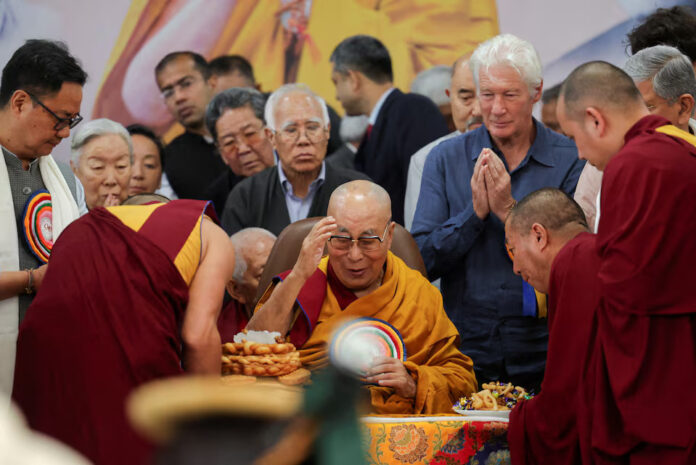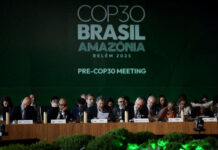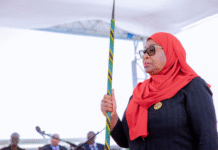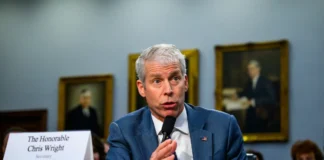
Tensions flared between Beijing and Prague after the Chinese government expressed strong opposition to a meeting between Czech President Petr Pavel and exiled Tibetan spiritual leader, the Dalai Lama, which took place in India on July 27.
In a statement released late Sunday by the Chinese embassy in the Czech Republic, Beijing said it “resolutely opposed” the high-level engagement, calling on the Czech government to uphold its “one-China political commitment” and avoid actions that could jeopardize bilateral relations.
“China firmly opposes any form of official contact between any country’s government officials and the Dalai clique,” the embassy said, referring to the Tibetan spiritual leader and his circle with terminology commonly used by the Chinese government to describe groups it accuses of separatism.
The statement went on to urge Prague to take “immediate and effective measures to eliminate the bad influence” of the meeting, and warned against sending “any wrong signals to ‘Tibetan independence’ separatist forces.”
President Pavel’s meeting with the 88-year-old Dalai Lama marks a rare diplomatic gesture by a European head of state toward the exiled Tibetan leader, who has lived in India since fleeing Tibet in 1959 following a failed uprising against Chinese rule. The Dalai Lama remains a globally respected figure for his advocacy of nonviolence and religious freedom, though Beijing views him as a dangerous separatist.
China considers Tibet an inalienable part of its territory and regards any official engagement with the Dalai Lama as an infringement on its sovereignty. The one-China policy, which holds that there is only one China and that Taiwan and Tibet are part of it, is a cornerstone of Beijing’s foreign relations, and it expects all countries with which it has diplomatic ties to adhere strictly to this principle.
President Pavel, a former NATO general and vocal supporter of democratic values, has often emphasized the importance of human rights and freedom of speech, themes closely aligned with the Dalai Lama’s teachings. His meeting in India may be seen as a continuation of the Czech Republic’s tradition of supporting dissidents and exiled leaders, a legacy dating back to former President Václav Havel, who also hosted the Dalai Lama in the 1990s.
India, where the meeting took place, hosts approximately 70,000 Tibetans and the Tibetan government-in-exile. While New Delhi officially recognizes Tibet as part of China, it allows the Dalai Lama to live and travel freely, using his presence as a form of soft power in its complex relationship with Beijing.
As of Monday, the Czech government had not issued an official response to the Chinese statement. However, analysts say the diplomatic spat could add to broader strains in China-Europe relations, especially amid growing scrutiny of Beijing’s human rights record and strategic assertiveness.
The episode underscores the enduring sensitivity of the Tibet issue and highlights the geopolitical complexities involved when global leaders engage with figures considered dissidents by Beijing.
Written By Rodney Mbua


















